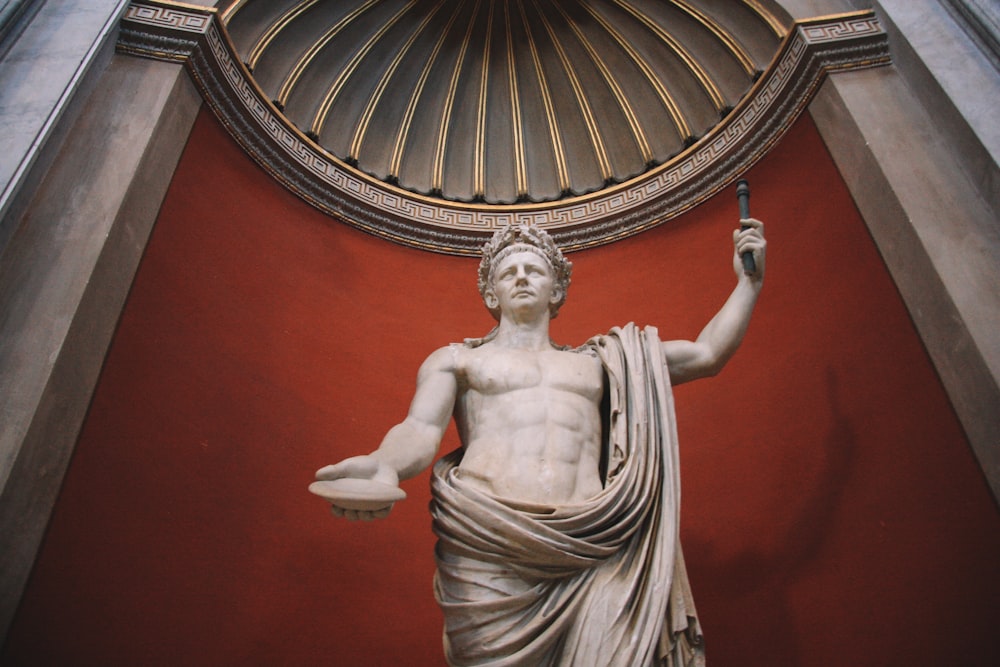The history of empires is a tapestry woven with the threads of ambition, conquest and power. Two of the most influential figures in the annals of the empire-building are Julius Ceasar and Napoleon Bonaparte.
While separated by centuries and geography, their stories bear striking similiarities as both played pivotal roles in reshaping the destiny of their respective empires.
This article explores the rise and fall of the Roman Empire, drawing parallels between Caesar and Napoleon and examining the factors that led to the eventual collapse of one of history's most formidable empires.

The Rise of Julius Caesar
Julius Caesar, born in 100 BCE, emerged as a charismatic leader during the tumultuous years of the late Roman Republic. His military prowess, coupled with his political acumen, catapulted him to prominence. Caesar's campaigns in Gaul not only expanded Roman territory but also earned him the loyalty of his legions. In 49 BCE, he famously crossed the Rubicon River, sparking a civil war against the Senate. By 45 BCE, Caesar had emerged victorious, consolidating his power as dictator.
Napoleon's Ascent to Power
Napoleon Bonaparte, born in 1769, was a product of the French Revolution. His military brilliance, culminating in the Italian Campaign and the Egyptian Expedition, made him a national hero. In 1799, he staged a coup d'état, overthrowing the Directory and establishing the Consulate. Napoleon later declared himself Emperor in 1804, symbolizing his ambition to restore France's glory and expand its empire.
Parallels in Ambition and Leadership
Both Caesar and Napoleon shared a deep ambition for power and a belief in their destiny to lead their nations. They cultivated a popular image, emphasizing their connection to the people and their ability to bring stability in times of crisis. Caesar's "Veni, Vidi, Vici" and Napoleon's "L'État, c'est moi" (I am the state) encapsulate their authoritative personas.

Military Prowess
Both leaders were celebrated military tacticians. Caesar's conquest of Gaul and Napoleon's victories in Europe are testaments to their strategic brilliance. They reformed their armies, introducing new tactics and technologies, which bolstered their military might.
Reforms and Governance
Caesar and Napoleon implemented numerous reforms during their rule. Caesar enacted land reforms, extended Roman citizenship, and reformed the calendar. Napoleon introduced the Napoleonic Code, which remains influential in modern legal systems. These reforms aimed to consolidate power and bring about stability.
The Fall of the Roman Empire
The Roman Empire, despite its immense power and territorial expanse, eventually fell. The causes were multifaceted: political corruption, economic decline, overextension, and invasions by barbarian tribes. The assassination of Julius Caesar in 44 BCE contributed to the political instability, setting the stage for the rise of the Roman Empire's first emperor, Augustus.
The Fall of Napoleon's Empire
Napoleon's empire also met its demise. His expansionist ambitions led to a series of costly military campaigns, most notably the failed invasion of Russia in 1812. The ensuing Sixth Coalition defeated Napoleon in 1814, exiling him to Elba. Although he briefly returned in 1815 during the Hundred Days, he was decisively defeated at Waterloo. Napoleon was exiled again, this time to Saint Helena, where he died in 1821.
Conclusion
The stories of Julius Caesar and Napoleon Bonaparte, though separated by centuries, illustrate the intoxicating allure of power and the perils of unchecked ambition. Both leaders reshaped their empires through military conquests and political reforms, but ultimately, the fate of their empires was sealed by a combination of internal and external factors. The Roman Empire succumbed to political decay and external threats, while Napoleon's empire crumbled under the weight of costly military campaigns. Their legacies, however, continue to be studied and debated, reminding us of the complex and enduring nature of empire-building and its consequences.









